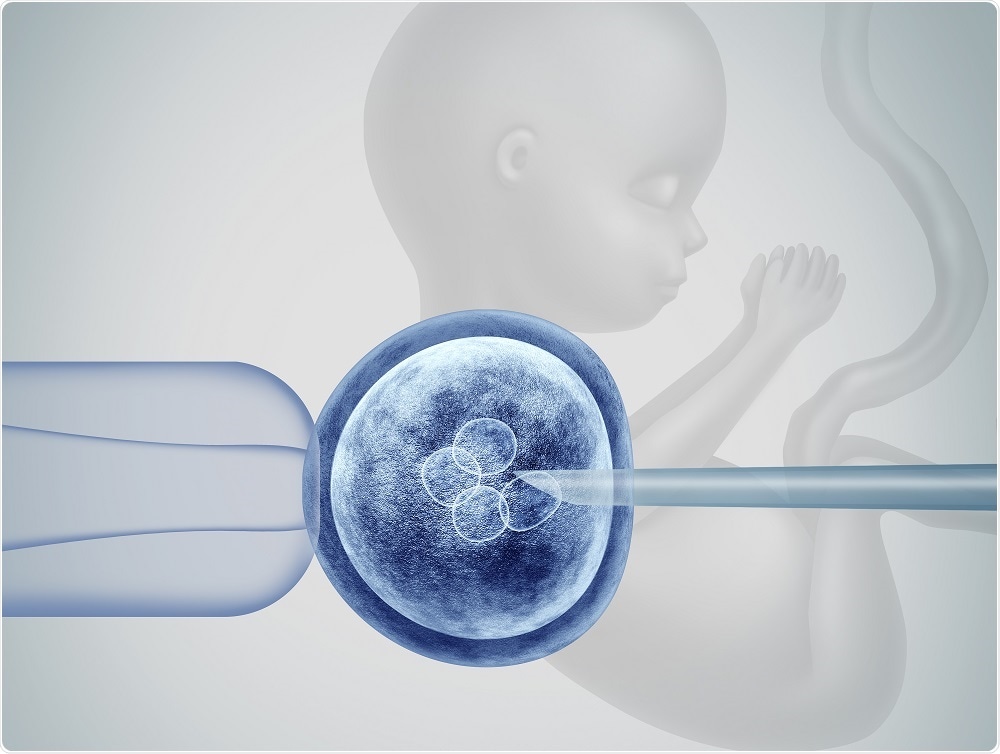The research was carried out following Chinese scientist He Jiankui’s controversial CRISPR gene-editing experiment last year in which he tried to recreate the effects of the mutation in the CCR5 gene in human embryos.
The twin girls that were born as a result did not end up with the exact mutation described in the current study, but the work gained attention due to its relevance to such experiments.

Image Credit: Lightspring / Shutterstock.com
Researchers rejected the findings
Scientists taking a fresh look at the research rejected the findings, saying there is no evidence to support the erroneous conclusion that people with the mutation are more likely to die early. The mistake had arisen due to technical errors in the way the mutation was identified.
Lead author Rasmus Nielson (University of California), who co-authored one of the studies that rejected the results, said he felt he should “put the record straight for the public.”
Some researchers pointed out that the original paper and its retraction would not necessarily provide insights into the health of the twins anyway since the embryos were not edited to have exactly the same mutation as the natural variant.
However, the event has prompted questions about how the safety of attempts to gene-edit human embryos should be assessed in the future.
Jiankui’s controversial experiment
In November 2018, Jiankui shocked the scientific community with the announcement that he had disabled the CCR5 gene in human embryos, resulting in the twin birth of the world’s first CRISPR babies. He said he had focused on CCR5 because people with a deletion mutation in the gene, called delta-32, confer resistance to HIV, without appearing to suffer from any adverse health effects.
During his presentation, Jiankui indicated that one of the twins had both copies of CCR5 altered, while the other twin only had one of the copies altered and none of the edits created were an exact match for delta-32.
Research has previously suggested that the delta 32 mutation is associated with negative health effects. One study found that people with the mutation were at greater risk of dying from influenza, for example.
To investigate, Nielson and colleague Xinshu Wei assessed genome and health data for hundreds of thousands of people using the UK Biobank database and looked specifically at people who carried the delta-32 mutation in both copies of CCR5.
In the paper, they reported that people with two copies of the mutation were at a slightly increased risk of dying by the age of 76, compared with people who had one or no copies.
They also reported that the database included fewer people with the double mutation than evolutionary theory predicted, which the researchers also took as an indicator that those people were, on average, dying at a younger age than the general population.
The results were not replicable
As soon as the paper was published, questions emerged about the study’s conclusion. Epidemiologist Sean Harrison from the University of Bristol immediately tried to replicate the results by analyzing mutations near to delta52 that should have generated the same results. After finding that this was not the case, he announced his findings by twitter and later in a blog post.
The discrepancy caught the attention of population geneticist David Reich from Harvard Medical School who is studying CCR5. Working with Nielson, he discovered a flaw in the method Nielson and Wei had used to count the number of people in the UK Biobank who had the double mutation.
The probe that measured the mutation they were looking for did not always reliably identify the correct target sequence, leading to an undercount. This is what was accountable for the absence of carriers in the database, rather than the harmful effects of the mutation meaning the carriers had died earlier than the average person.
Nielsen points out that the problem was unique to the specific variant the team was trying to track, rather than being a general problem with UK Biobank data.
The authors retracted the paper on October 8th, saying:
There were checks we could have done and should have done that we didn’t do. We missed the fact that there was a genotyping error.”
How will the retracted paper affect future research?
Gaétan Burgio from the Australian National University thinks the original Nature Medicine paper offered no insights into the health of the gene-edited twins and that the retraction will be of no relevance to CRISPR babies in the future.
Nielsen hopes that the error does not deter others from using databases such as the UK Biobank to understand the effects of human germline editing.
Kári Stefánson, head of the company deCODE genetics in Reykjavik, says that Nielsen’s original study was not a valuable contribution to debates over germline gene editing, but he agrees that resources such as the UK Biobank can inform future efforts.
I think databases like this provide a fairly good way of assessing the probable effect of altering bases, no question about it.”
Journal reference:
Wei, X. & Neilsen, R. (2019). CCR5-∆32 is deleterious in the homozygous state in humans. DOI: 10.1038/s41591-019-0459-6.